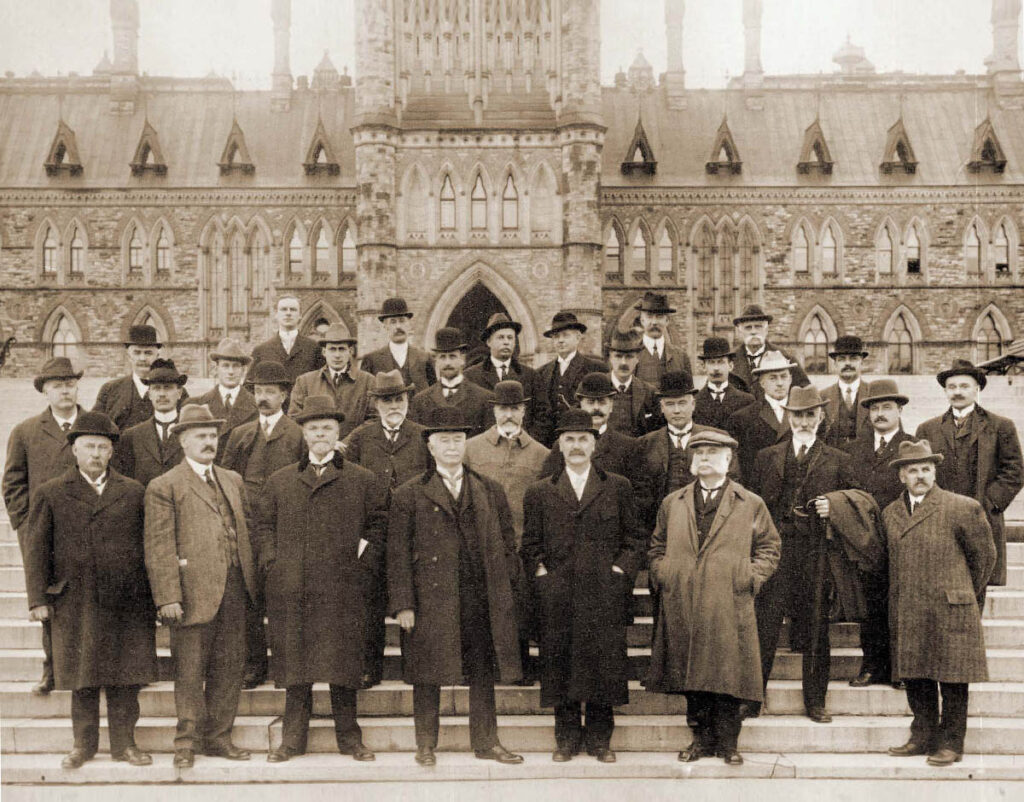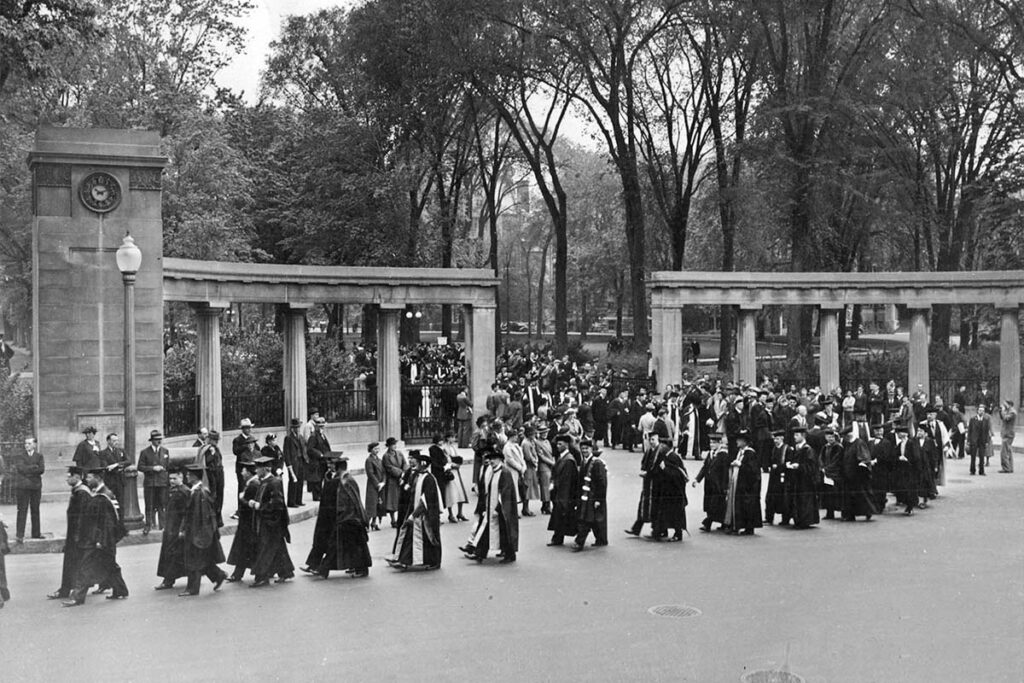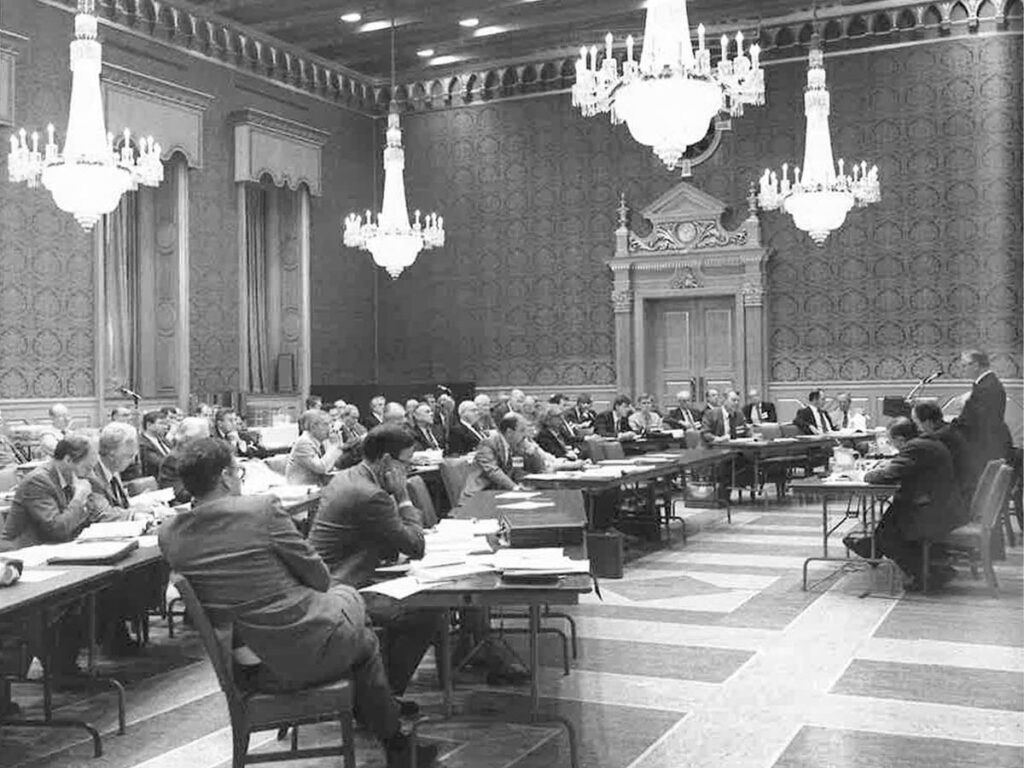Today’s MCC: Over 100 years in the making
The Medical Council of Canada (MCC) is proud to be part of a system of physician assessment in Canada that is admired around the world for its rigour and innovation. Requirements to practise medicine were not always well defined. Even today, the required competencies to ensure safe care and meet patient needs are evolving.
In the timeline below, explore over a century of the MCC’s journey as it steadfastly works to deliver on its mission of upholding standards of safe patient care. Explore the MCC’s history of adapting to the changing landscape while working with regulatory authorities, licensing bodies, and the medical education community.
1800s
In the 19th century, the medical landscape of the areas that would become Canada was fragmented, with varying standards across jurisdictions. In the late 1820s, formal medical education was established with the creation of the first faculty of medicine. Calls for national registration grew in the second half of the century as the benefits of standardized assessment became more recognized.
- 1867: The Canadian Medical Association (CMA) is established.
- 1894: The CMA committee on national registration is formed.

The first Council, Parliament Hill, Ottawa, 1912.
Early 1900s
In the early 1900s, regulatory changes and the establishment of the MCC led to the adoption of more standardized requirements for registration and assessment across the country.
- 1912: The MCC is founded by Thomas Roddick, setting the stage for standardized physician assessment and the Licentiate of the Medical Council of Canada (LMCC).
- 1913: The MCC offers its first examinations.
- 1929: The number of candidates writing the MCC exam grows from 71 in 1913 to 371 in 1929.
Mid 1900s
As medical practices evolved, so did the MCC’s approach. The mid–20th century saw pivotal developments, including the introduction of specialist examiners and the transition to machine-marked assessments, streamlining the licensing process and ensuring rigour.
- 1942: The Association of Canadian Medical Colleges (ACMC)* is established, fostering collaboration in medical education.
- 1952: A one-year internship requirement for the LMCC is introduced, emphasizing practical skills.
- 1960: The MCC appoints its first specialist examiners, reflecting growing specialization in medicine in Canada.
- 1962: The first major update to the exam format is implemented with input from other national medical bodies.
_________
*Renamed the Association of Faculties of Medicine of Canada (AFMC) in 2005.

McGill University convocation procession through the Roddick Memorial Gates, Montreal, 1940s. Photo credit: McGill Archives.

75th meeting of Council, West Block, Parliament Hill, Ottawa, 1987.
Late 1900s and early 2000s
As a result of demographic changes and immigration trends, there was a growing demand for physicians in the latter half of the 20th century. The MCC adapted its examinations to meet the needs of an increasingly diverse workforce. The turn of the millennium ushered in the era of computer-administered exams, revolutionizing assessment methods.
- 1970: More than 2,000 candidates take the MCC examination in the 1970s and more than half are trained outside of Canada.
- 1979: A new exam, the Medical Council of Canada Evaluating Examination is introduced for international medical graduates (IMGs).
- 1992: The Medical Council of Canada Qualifying Examination (MCCQE) Part I and MCCQE Part II are launched.
- 2000: The MCCQE Part I is offered as a computer-enabled exam.
- 2009: The MCC introduces self-assessment tools to support candidates in their exam preparation.
2010s
In the 2010s, the MCC responded to societal shifts, emphasizing equity and inclusivity in physician assessment. Updates to exam blueprints and the introduction of new tools reflected a commitment to culturally safe care.
- 2010: The National Assessment Collaboration (NAC) Examination is introduced.
- 2013: The online portal physiciansapply.ca is launched to simplify how candidates can access MCC services and apply for medical registration.
- 2017: MCC 360 is launched. It is a multi-source feedback tool developed for workplace-based assessment.
- 2018: The NAC Practice-Ready Assessment (PRA) framework becomes operational, supporting an additional pathway to licensure for IMGs. A new Therapeutics Decision-Making Examination is established to help select candidates. A suite of preparatory products for the MCCQE Part I is launched.
- 2019: The MCCQE Part I was delivered in 80 international locations for the first time.

A candidate taking the NAC Examination in a clinical, simulated setting.

The online delivery of the MCCQE Part I.
2020s
The COVID-19 pandemic exacerbated well-documented vulnerabilities in Canada’s health care system, including the shortage of physicians, and it accelerated the provision of virtual care. To meet the realities of the pandemic, the MCC adapted and introduced online exam delivery. The MCC continues to evolve to help meet the needs of patients in Canada, with a heightened focus on inclusivity, cultural safety, and anti-racist and anti-oppressive health care.
- 2020: Exam delivery for the MCCQE Part I became available online through remote proctoring.
- 2021: The MCCQE Part II is discontinued.
- 2024: The National Registry of Physicians is launched, enhancing data management and regulatory processes in Canadian health care.